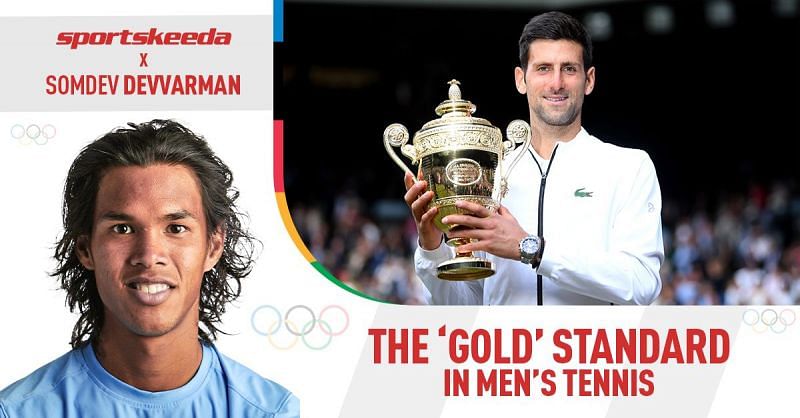
The Golden Slam chronicles: Is Novak Djokovic really going to "win it all" this year?
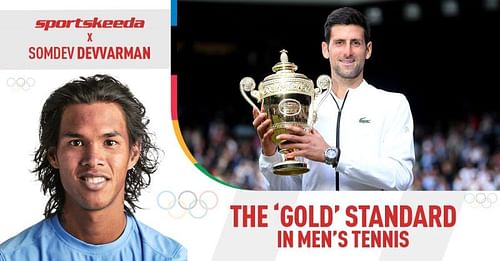
Are we in the midst of one of the most historic runs ever seen in tennis? With the Tokyo Olympics getting underway, the sporting world has been gripped by the insane possibility of Novak Djokovic winning the Golden Slam.
It is a feat accomplished just once before, by the great Steffi Graf in 1988.
Early in 2020, during the Australian Open, Djokovic was asked what he would want to win more - a particular Grand Slam or the Olympic gold. In reply, Djokovic said:
"I want to win them all in the same year."
There were a few polite laughs from the presenters, and from Djokovic himself, as they continued on. But anyone who knows the Serb would have realized that he was dead serious. Scarily enough, it seemed like he whole-heartedly believed he could do it.
The prevailing consensus in the tennis world is that if you want to beat Djokovic, there are a few basic ingredients that are absolutely indispensable:
1. You have to serve lights out.
2. You need to be clutch on the big points; you have to be brave, you have to go after your shots, and you have to make your shots.
3. You have to pray that Djokovic feels the pressure and doesn't play his best
In other words, when you're up against Novak Djokovic, it’s not all in your control.
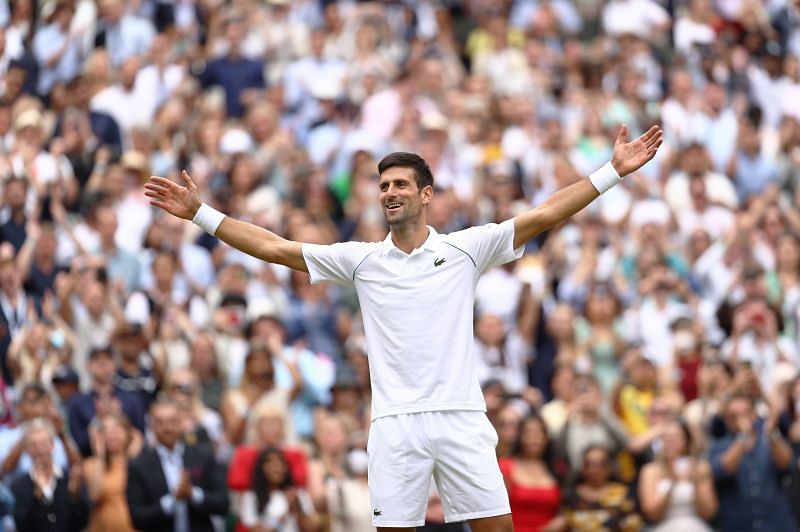
As we break down the Serb's chances in Tokyo by examining the draw, the biggest question is: does anyone have the game, along with the self-belief, to beat him?
Djokovic's challengers would be happy that the tournament has the best-of-three format, unlike at a Slam. That might give them a better chance of causing an upset.
The men’s draw at the Tokyo Olympics tennis event
Novak Djokovic's opening-round match is against 28-year-old Bolivian Hugo Dellien. With all due respect to Dellien and to Jan-Lennard Struff (Djokovic's potential second-round opponent and someone who has taken a set off him at a Slam), the more interesting matchup for the Serb is a potential third-rounder against the young and talented Italian Lorenzo Musetti.
Musetti, of course, famously took the World No. 1 to five sets at the French Open this year.
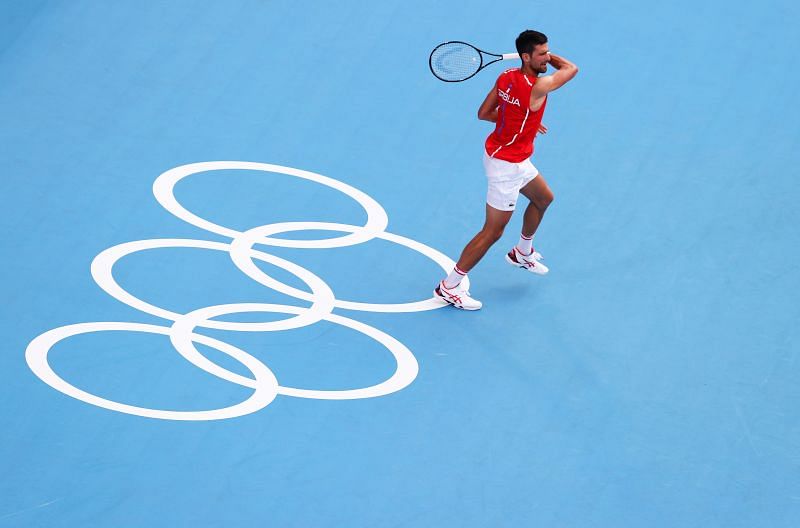
The hard-hitting Russian Andrey Rublev is Djokovic's potential quarterfinal opponent. And the only players with the game to beat him in the semis appear to be Alexander Zverev, Lorenzo Sonego, Aslan Karatsev and Hubert Hurkacz.
Djokovic being Djokovic would recognize his opportunity here, but surely he also understands the importance of taking it one step at a time. We can expect a fully focused and lethal display of tennis from the Serb right off the bat.
The bottom half presents a huge opportunity for the Next Gen. Daniil Medvedev and Stefanos Tsitsipas, the second and third seeds respectively, seem to be the favorites to make it to the semis. But the popcorn match of the first round has to be the one between two-time Olympic gold medalist Andy Murray and the young and talented Felix Auger-Aliassime.
Indian interest in the tennis event at Tokyo
The lone match in singles for India sees Sumit Nagal taking on Uzbek veteran Denis Istomin.
This could be a tricky encounter for Nagal given the quick conditions at the Ariake Tennis Park in Tokyo. But it will also be a good opportunity for the 23-year-old in his first Olympics.
Should he win, Nagal would be in for a huge test against Medvedev in the second round. Fingers crossed he gets there.
In women’s doubles, Sania Mirza and Ankita Raina have a tough opener against the Kichenok twins from Ukraine, who are both ranked in the mid-40s. This will be a challenge for the Indians, but the tie shouldn’t hold too many surprises as Sania partnered Nadiia Kichenok last year on their way to the Hobart International title.
So it's a familiar opponent, but a tough one nonetheless. Should Sania and Ankita win, they are projected to face the eighth-seeded pair from America, Alison Riske and Nicole Melichar.
The women's singles draw
Moving on to the women’s draw, most of the attention is on the first and second seeds, Ashleigh Barty and Naomi Osaka respectively. Barty, the current World No. 1 and recently crowned Wimbledon champion, is playing the tennis of her life. And Osaka, the home favorite, is coming back from a break after withdrawing from the French Open mid-tournament and subsequently from Wimbledon too.
The reigning Australian and US Open champ, Osaka usually loves playing on quick hardcourts. But her bigger challenge will perhaps be overcoming the rustiness due to her lack of match play.
Once Osaka hits her stride, she’s one of the toughest competitors to play against. The question is, can she begin to get going before it’s too late?
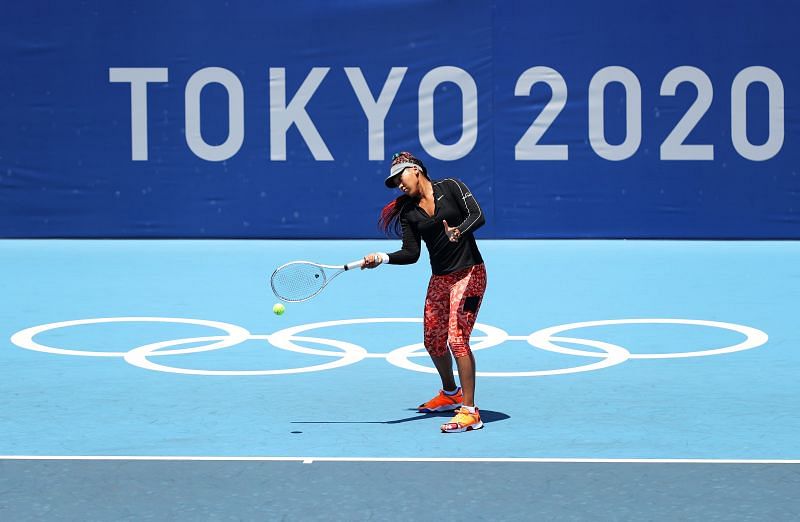
In recent times, the women’s draw at every event has been a lot more open than the men's. The top half in Tokyo is stacked with contenders such as Barbora Krejcikova (reigning French Open champion), Aryna Sabalenka, Petra Kvitova and Garbine Muguruza. The bottom section has the in-form Karolina Pliskova, Jennifer Brady, Elina Svitolina and the potential quarterfinalist for Osaka in Iga Swiatek.
In all honesty, all of these players would believe that they have a shot at gold. And that’s what makes the tournament even more exciting.
Chances for the underdog
Do heavy underdogs ever win in a sport like tennis? With stars like the Big 3 and Andy Murray in the men’s section, and the dominance of the Williams sisters and other Grand Slam winners in the women's, the odds have always been stacked against the underdog. Monica Puig, however, would beg to differ.
At the 2016 Rio Games, Puig made history by becoming the first Puerto Rican to win gold at the Olympics. It was the ninth overall medal for Puerto Rico, which first participated in the Olympics in 1948.
En route to the gold medal, Puig took down three favorites: Muguruza, Kvitova and Angelique Kerber (all Wimbledon champions). Interestingly, Puig is yet to reach the quarterfinals of a Grand Slam.
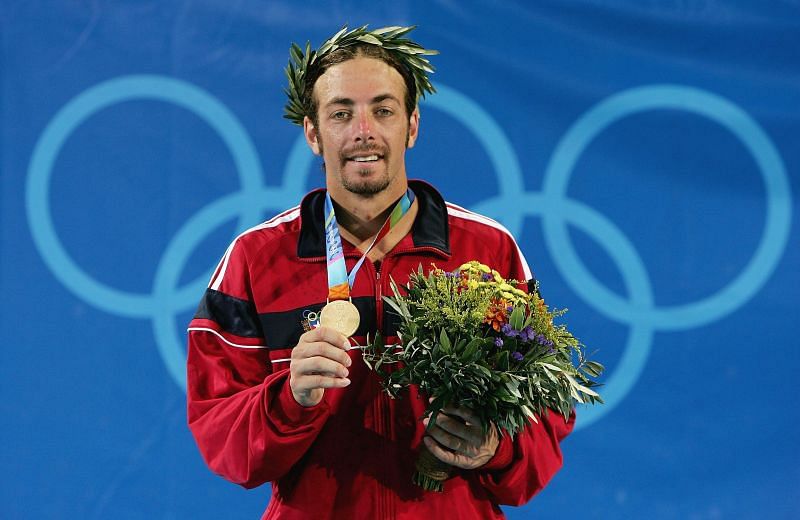
What about the men? You’ll have to look no further than Nicolas Massu at Athens 2004. In a star-studded line-up that included Roger Federer, Andy Roddick, Marat Safin, Carlos Moya and Juan Carlos Ferrero (all Grand Slam champs), it was Massu who emerged champion.
This was after he had secured gold in men's doubles with his partner Fernando Gonzales. These remain the only two gold medals that Chile has won at the Olympics.
Massu never made the quarterfinals of any Grand Slam event either.
Some experts believe that these results were among the biggest flukes of all time. And going strictly by stats, you can’t really contest that. But the point remains that upsets are always possible.
They may not be very likely, but that’s why you play the game. Because there’s always a chance. And for some reason, when athletes put their country’s name on the back of their shirts, there seems to be a special spark in them.
While all the athletes will attempt to find their spark at the Tokyo Games, the dream of winning a medal will become a reality for some. If Novak Djokovic does the unthinkable in his pursuit of the Golden Slam, it will be ever so special. And if he doesn’t, it will require a special effort from someone.
One way or another, something "special" is guaranteed at Tokyo 2021.